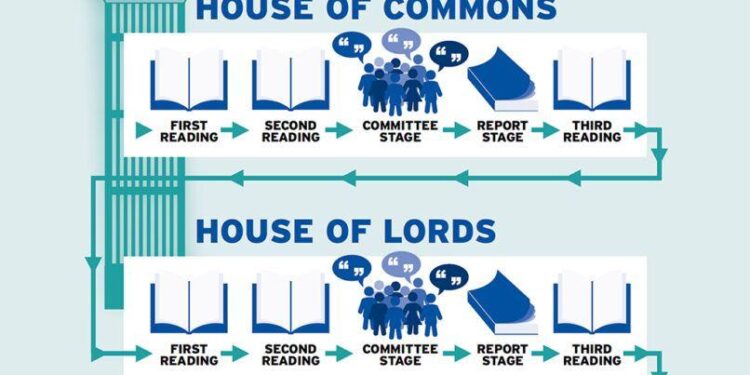The UK Parliament has taken a historic step by approving the assisted dying bill, marking a significant shift in the nation’s approach to end-of-life care. The legislation, which permits terminally ill adults to seek medical assistance to end their lives under strict conditions, has ignited intense public and political debate. This article examines how the new law would operate in practice, the safeguards it includes, and the implications for patients, healthcare providers, and society at large.
Assisted Dying Bill Gains Parliamentary Approval What Are the Key Provisions
The newly approved legislation introduces a framework allowing terminally ill adults in the UK to legally request medical assistance to end their lives under stringent conditions. Patients must be over 18, diagnosed with a terminal illness expected to lead to death within six months, and possess full mental capacity to make such a decision. The bill mandates multiple safeguards, including the requirement for two independent medical professionals to confirm the diagnosis and prognosis, alongside a thorough assessment of the patient’s voluntary consent free from external pressure.
Key provisions include:
- Mandatory written request – patients must submit a clear, repeated request for assisted dying, spaced at least 15 days apart
- Safeguards against coercion – thorough psychological evaluation to ensure decisions are well-considered and autonomous
- Waiting period – a minimum 15-day reflection period between requests to avoid impulsive decisions
- Review boards – establishment of independent committees to oversee the legality and ethical compliance of each case
- Reporting requirements – all prescribed medications and deaths under the bill to be recorded and reviewed by officials
| Provision | Description | Purpose |
|---|---|---|
| Eligibility Criteria | Terminal illness, adult, mental capacity | Ensure only those meeting strict conditions can access assisted dying |
| Dual Medical Certification | Two doctors must agree diagnosis and prognosis | Prevent misdiagnosis and false eligibility |
| Cooling-Off Period | Minimum 15-day wait between requests | Allow time for reflection and reduce impulsivity |
| Oversight Committee | Independent review of cases | Maintain ethical standards and compliance |
Safeguards and Eligibility Criteria Ensuring Ethical Implementation
The newly approved bill establishes a stringent framework designed to uphold the highest ethical standards throughout the assisted dying process. Central to this is a comprehensive verification system requiring two independent medical practitioners to confirm the diagnosis and prognosis of terminal illness, ensuring that only eligible individuals may access the option. Furthermore, patients must be mentally competent, capable of making informed decisions, and free from external coercion, which is safeguarded through mandatory psychological assessments. These layers of checks aim to protect vulnerable populations while respecting individual autonomy.
- Eligibility: Adults suffering from terminal illnesses with less than six months to live.
- Mental Competency Verification: Conducted by qualified psychiatrists.
- Cooling-off Period: A minimum of 15 days between request and administration.
- Voluntary Participation: Explicit written consent required at every step.
- Oversight: A dedicated regulatory committee reviews each case post-procedure.
| Safeguard | Description |
|---|---|
| Dual Medical Confirmation | Two doctors verify terminal diagnosis independently. |
| Psychological Evaluation | Ensures patient is of sound mind and decision-making capacity. |
| Cooling-off Period | Mandatory waiting period to confirm patient’s wish. |
| Regulatory Oversight | Committee monitors compliance and reviews cases post-assistance. |
Experts Call for Comprehensive Oversight and Supportive Care Frameworks
Leading experts emphasize that the new legislation demands robust regulatory mechanisms to ensure ethical compliance and safeguard vulnerable individuals. Medical professionals, legal authorities, and advocacy groups are calling for a multilayered oversight system that includes independent review panels, mandatory psychological evaluations, and strict documentation protocols. Such measures aim to prevent misuse while maintaining transparency throughout the assisted dying process. The establishment of specialized training programs for healthcare providers is also highlighted as key to delivering compassionate and legally sound care.
Alongside legal oversight, there is a unanimous call for integrated supportive care frameworks that extend beyond the act itself. Experts advocate for comprehensive palliative care access, emotional and spiritual counseling, and continued family support before and after the procedure. The following table outlines the proposed elements critical to the framework:
| Framework Component | Description |
|---|---|
| Independent Review Panels | Evaluate eligibility and adherence to legal criteria |
| Psychological Assessment | Ensure mental capacity and voluntary consent |
| Healthcare Provider Training | Standardized education on ethical and procedural guidelines |
| Comprehensive Palliative Care | Address pain management and quality of life needs |
| Emotional & Spiritual Support | Provide counseling to patients and families |
Wrapping Up
As the UK Parliament moves forward with the approval of the assisted dying bill, the nation enters a new chapter in the ongoing debate over end-of-life choices. The legislation outlines specific criteria and safeguards aimed at balancing individual autonomy with ethical considerations. While supporters hail the bill as a compassionate step toward respecting personal dignity, opponents continue to raise concerns about potential implications. The coming months will be critical as regulatory frameworks are developed and the practical workings of the law take shape, shaping the future of assisted dying in the UK.
















